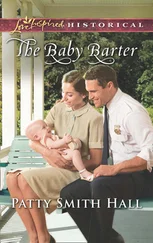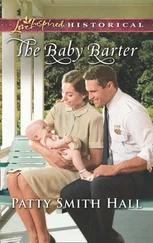Conversation resumes, in a slightly giddy way, but the party is somehow lesser. After a few moments the helicopter starts, attaining a frenzied pitch before lifting, a racket of impossible physics. A beam of light crosses the dining-room window, followed by two tail lights. The valley echoes noisily as the Prime Minister makes his way north, into the lion’s den. In the aftermath, their host stands to lead a toast.
Ladies and gentlemen, if you would raise your glasses please. To the grey wolf. May she come home after long years away. May she find a good home. To the grey.
The room choruses.
The grey.
Rachel drinks with everyone, though the ceremonial rituals seem a little unnecessary — silly, even. Here is the operating room, she thinks, the old quarters where men of power do business and break bread together. If she ever doubted Thomas Pennington’s credentials, his ability to get what he wants, she no longer does. The thought is not entirely reassuring. They adjourn to a plush sitting room with enormous settees. Coffee arrives, brandy, exquisite filigree chocolates, stamped with the Pennington coat of arms. She still feels a little sick, in need of air, and decides to leave — she has done her duty enough. After a brief interval she finds Alexander and bids him goodnight. He is also preparing to go, seems sober, though there is an empty brandy glass next to him and he was never without wine at dinner. He will be up at 5 a.m., he tells her, the usual time.
You’ve got my number, but come by the surgery, he suggests. You can get me up to speed on everything.
He seems entirely and commendably up to speed, but she agrees she will come. She is glad to have a good ally for the project already. She thanks Thomas Pennington and Sylvia for the evening, which was, in the end, enjoyable. Thomas is redder of face, gently listing and faintly victorious, but Sylvia is as kempt and composed as when the evening began. She stewards her father as a chancellor might, or the first lady. A woman who understands abstinence, how to retain control; Rachel is impressed.
I won’t chase you or Daddy, Sylvia says, but I am so madly keen to help. Do bear me in mind.
Yes, I can tell. I’m sure it’ll work out. Goodnight.
There’s probably no harm in a month or two’s work, if she really wants it, Rachel thinks. She is given her coat, shown to the door, and she sets off across the private grounds, trying to remember the entryway to the path through the woods, wondering whether she will trip an alarm system and suddenly be surrounded by police and dogs. A torch would have been sensible. The darkness is punctuated by constellations, gleaming less brightly than above Chief Joseph, but as graceful, as old and absolute, and there is light enough. She collects her boots from underneath the topiary and laces them up. The rich dinner is sitting uncomfortably in her. Bending over makes the sickness worse. Bending, brushing her teeth, even coffee is beginning to affect her in such a way. She finds a ginger sweet in her pocket, unwraps it. The sooner the matter is resolved, the better. Her appointment at the GP is in two days. The air is clear, silvery, and as she walks back to the cottage through the mantle of faint godless starlight, she starts to feel better.
*
The health centre is new, located behind a housing development on the edge of town. She arrives early, parks outside, and sits for a moment, listening to the news on the radio. Dyspeptic voices report on the debates and clips of the more heated exchanges are played. The First Minister is goaded, accused of being racist, an economic dunce, but he maintains optimism. Scotland was, is, and will be a beacon of social enlightenment. He quotes one of the country’s premier writers: w ork as if in the early days of a better nation . Optimism is all well and good but will not keep the lights on, the Prime Minister retorts. Mellor’s Home Counties accent does him no favours, Vaughan Andrews was right; he sounds patronising. Better to have put forward a pro-union Scot. It is strange to think that less than forty-eight hours ago the man was shaking her hand; that she was, momentarily, inside the circle. The lights in England might soon depend on Scotland’s hydroelectric power and oil, First Minister Douglas counters, unless extortionate business with Russia and the Middle East is preferable. The bulletin ends. The weather forecast predicts rain, spreading from the west, heavy at times. She switches the radio off and goes into the surgery.
The receptionist is talking on the phone and waves Rachel towards the monitor. She checks herself in on the touch screen and sits in the waiting area. She selects a magazine, scans the pages, then closes it. Ten minutes pass. She is the first appointment of the day but already there seems to be some kind of delay — early-morning emergencies being fitted in, no doubt. Heart attacks, farming injuries. She looks at the posters, for cancers of all kinds, and sexual health; signs warning that appointments are twelve minutes only, multiple problems require double bookings. She begins drafting an email to Lawrence on her phone. Perhaps we could meet and talk . . The coward’s method of reconciliation. She deletes it.
A doctor appears in the waiting room and calls her through. She is middle-aged, tired-looking. She starts back down the corridor, at an extremely brisk pace, and Rachel follows. The doctor glances over her shoulder and introduces herself.
I’m Frances Dunning. How are you today?
OK, thanks.
Good.
An odd question, given the circumstances. Inside the office Rachel explains that she is pregnant. She knows the conception date. She has taken a test, knows how many weeks. It is the first time she has said this out loud and it does not seem quite real.
I have a urine sample. Do you need it?
No. That’s OK, I trust you.
The doctor looks over her records.
I don’t have any old notes for you.
I just moved back to the UK.
How are you feeling generally?
Alright. A bit sick. I’d like to talk about the options.
The doctor glances up at Rachel and then out of the surgery window at the playing fields beyond. A grey ceiling of cloud has begun to form: the promised rain. She asks Rachel the date of her last period and then calculates on the ob wheel.
Yes, you’re right. Twelve weeks or thereabouts. So we need to think reasonably quickly about everything.
The pregnancy was unplanned. I meant to sort it all out sooner.
Is this your first?
Yes.
Frances Dunning turns in her seat and faces Rachel fully. She has shadows under her eyes. A weekend locum, perhaps.
Might I ask why you delayed a termination?
I just moved back from America. It’s a bit complicated. The state where I was living brought in a new mandate — you have to have an ultrasound before having an abortion. The clinics are mostly pro-life.
Oh, yes, right — tricky. Are you decided?
Rachel moves uncomfortably in her chair. This is the question. The answer should be simple and easy, and yet.
I think so. I don’t think I want to have it. I’m not. . a hundred percent sure.
Not sure you want it, or not sure you don’t want it?
Both. I don’t know.
Doctor Dunning nods.
Well, there’s a little time. A termination procedure is slightly more complicated after fifteen weeks — it’s not a straightforward evacuation. You’d probably have to go down to Lancaster. Would you like to speak to someone about everything?
Rachel shrugs.
I’m speaking to you.
Would you like to speak to a counsellor?
No.
The doctor nods again. Her shirt is a bright, ugly green — distracting. Between the two prescriptive lenses of her bifocals it is hard to see her eyes properly. She is probably the same age as Rachel. There’s a silver framed photograph on the doctor’s desk, of a girl and a boy, perhaps eight and ten years old. Planned, no doubt, to fit with her life. Rachel moves in her chair again, begins to feel foolish. What are you doing? she thinks.
Читать дальше












